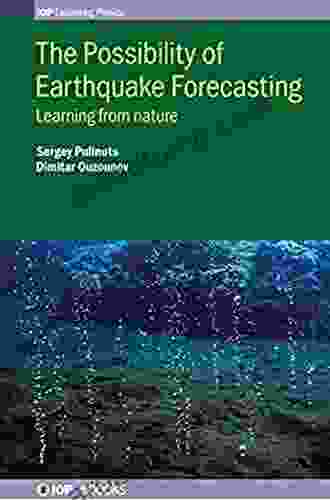The Possibility of Earthquake Forecasting: Unlocking Nature's Secrets

For centuries, earthquakes have instilled fear and awe in human societies. These unpredictable and devastating events have claimed countless lives and wreaked havoc on communities worldwide. But what if we could predict earthquakes before they strike? Could we mitigate their catastrophic effects and save countless lives?
In this comprehensive article, we delve into the fascinating and evolving field of earthquake forecasting. We will explore the latest scientific advancements, unravel the challenges, and examine the potential implications that could forever change our relationship with these formidable natural disasters.
5 out of 5
| Language | : | English |
| File size | : | 28908 KB |
| Text-to-Speech | : | Enabled |
| Screen Reader | : | Supported |
| Enhanced typesetting | : | Enabled |
| Word Wise | : | Enabled |
| Print length | : | 269 pages |
The Science Behind Earthquake Forecasting
Earthquake forecasting, the scientific pursuit of predicting earthquakes before they occur, has been an elusive goal for centuries. However, significant advancements in the field have brought us closer to this reality.
Modern earthquake forecasting relies on a combination of:
- Seismic monitoring: Seismometers, sensitive instruments that detect ground motion, are deployed in extensive networks around the globe. These networks capture data on seismic activity, providing valuable insights into the location, magnitude, and frequency of earthquakes.
- Historical data analysis: By studying past earthquakes and identifying patterns in their occurrence, scientists can develop statistical models to estimate the probability of future events in specific regions.
- Geodetic measurements: GPS and other geodetic techniques measure the deformation of the Earth's crust. This information can reveal subtle changes in the buildup of strain prior to an earthquake.
- Precursory signals: Some researchers believe that certain subtle changes in the environment, such as changes in groundwater levels or the release of gases, may precede earthquakes. These precursory signals are still poorly understood, but they hold promise for early warning systems.
Challenges in Earthquake Forecasting
Despite the advancements in science, earthquake forecasting remains a complex and challenging task. Several obstacles stand in the way of accurate and reliable predictions:
- Earthquake complexity: Earthquakes can vary greatly in terms of their magnitude, location, and timing. This complexity makes it difficult to develop universal models for forecasting.
- Data limitations: While seismic monitoring networks have expanded significantly, they are still limited in their coverage and sensitivity. Additionally, historical data on earthquakes is often incomplete, especially for regions with poor instrumentation.
- False positives and negatives: Earthquake forecasting models can generate false positives (predicting an earthquake that does not occur) and false negatives (failing to predict an earthquake that does occur). Balancing the trade-off between these errors is crucial.
- Ethical concerns: The potential ability to predict earthquakes raises ethical concerns, particularly regarding the dissemination of forecast information. False alarms can cause unnecessary panic and disruption, while withheld information could result in loss of life.
Potential Implications of Earthquake Forecasting
If earthquake forecasting becomes a reality, the implications for society would be profound. By providing advance warning, we could:
- Save lives: Timely evacuation and response efforts could significantly reduce the number of fatalities during an earthquake.
- Mitigate damage: Forecast information can guide emergency management decisions, allowing for the reinforcement of critical infrastructure and the protection of vulnerable communities.
- Improve urban planning: Earthquake forecasts can inform land-use planning decisions, identifying areas at high risk and guiding development towards safer zones.
- Economic benefits: By reducing the financial losses associated with earthquakes, forecasting can stimulate economic growth and stability.
- Advance scientific understanding: Accurate earthquake forecasts would provide valuable data for researchers, deepening our knowledge of earthquake processes and their relationship to other Earth systems.
The possibility of earthquake forecasting is a captivating and evolving field that holds immense promise for disaster mitigation and societal well-being. While challenges remain, the dedication of scientists worldwide is bringing us closer to unraveling the secrets of these formidable events.
As we continue to refine our forecasting methods and address the ethical considerations, we move towards a future where earthquakes no longer strike with the same devastating impact. The possibility of forecasting may not be here yet, but the relentless pursuit of knowledge and innovation brings us closer every day. Together, we can unlock nature's secrets and create a safer world for generations to come.
5 out of 5
| Language | : | English |
| File size | : | 28908 KB |
| Text-to-Speech | : | Enabled |
| Screen Reader | : | Supported |
| Enhanced typesetting | : | Enabled |
| Word Wise | : | Enabled |
| Print length | : | 269 pages |
Do you want to contribute by writing guest posts on this blog?
Please contact us and send us a resume of previous articles that you have written.
 Book
Book Novel
Novel Page
Page Chapter
Chapter Text
Text Story
Story Genre
Genre Reader
Reader Library
Library Paperback
Paperback E-book
E-book Magazine
Magazine Newspaper
Newspaper Paragraph
Paragraph Sentence
Sentence Bookmark
Bookmark Shelf
Shelf Glossary
Glossary Bibliography
Bibliography Foreword
Foreword Preface
Preface Synopsis
Synopsis Annotation
Annotation Footnote
Footnote Manuscript
Manuscript Scroll
Scroll Codex
Codex Tome
Tome Bestseller
Bestseller Classics
Classics Library card
Library card Narrative
Narrative Biography
Biography Autobiography
Autobiography Memoir
Memoir Reference
Reference Encyclopedia
Encyclopedia Stefano Bloch
Stefano Bloch Wayne Mcdill
Wayne Mcdill Christopher Peterson
Christopher Peterson Mabel Collins
Mabel Collins Yoseph Bar Cohen
Yoseph Bar Cohen Dk
Dk Gisela K
Gisela K Violet White
Violet White Tara Marie Catanzano
Tara Marie Catanzano D A Mishani
D A Mishani Deborah Tannen
Deborah Tannen Robert Sellers
Robert Sellers Tony Roppon
Tony Roppon Seth J Gillihan Phd
Seth J Gillihan Phd 2013th Edition
2013th Edition Yung Pueblo
Yung Pueblo Valerie Alexander
Valerie Alexander Todd A Blodgett
Todd A Blodgett William J Reynolds
William J Reynolds Suzannah Showler
Suzannah Showler
Light bulbAdvertise smarter! Our strategic ad space ensures maximum exposure. Reserve your spot today!

 Alexander BlairTop 13 Fun Halloween Party Recipes And More Spooky Ideas Cook Tonight Holiday
Alexander BlairTop 13 Fun Halloween Party Recipes And More Spooky Ideas Cook Tonight Holiday
 Curtis StewartDiscover the Enchanting World of 'Clarinet Part of Gospels Spirituals for...
Curtis StewartDiscover the Enchanting World of 'Clarinet Part of Gospels Spirituals for...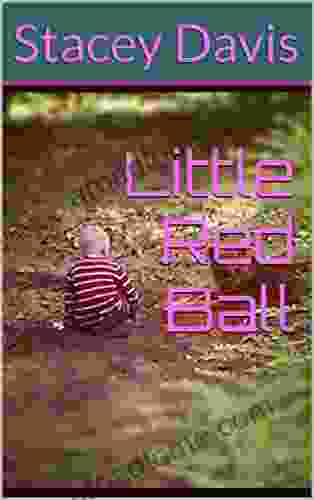
 Clinton ReedEmbark on a Whimsical Adventure with "Little Red Ball": A Captivating Tale by...
Clinton ReedEmbark on a Whimsical Adventure with "Little Red Ball": A Captivating Tale by... Evan SimmonsFollow ·13.4k
Evan SimmonsFollow ·13.4k Tom HayesFollow ·14.3k
Tom HayesFollow ·14.3k Andy ColeFollow ·10.8k
Andy ColeFollow ·10.8k Yasunari KawabataFollow ·3.1k
Yasunari KawabataFollow ·3.1k Walter SimmonsFollow ·19k
Walter SimmonsFollow ·19k Alexander BlairFollow ·4.9k
Alexander BlairFollow ·4.9k William WordsworthFollow ·14.2k
William WordsworthFollow ·14.2k Jamison CoxFollow ·5.9k
Jamison CoxFollow ·5.9k

 Timothy Ward
Timothy WardSteamy Reverse Harem with MFM Threesome: Our Fae Queen
By [Author...
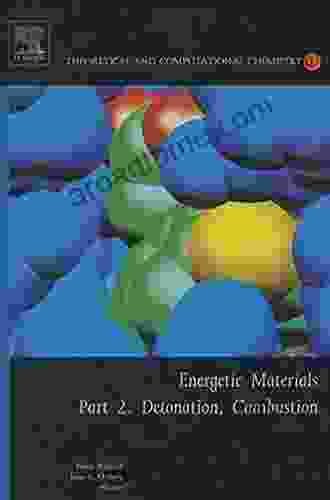
 Cody Blair
Cody BlairThe Ultimate Guide to Energetic Materials: Detonation and...
Energetic materials are a fascinating and...
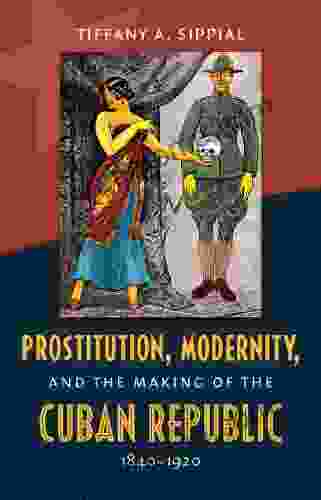
 Kenzaburō Ōe
Kenzaburō ŌeProstitution, Modernity, and the Making of the Cuban...
By Emily A....

 Kirk Hayes
Kirk HayesUnveil the Enchanting World of The Rape of the Lock by...
Alexander Pope's epic...

 Ivan Turgenev
Ivan TurgenevTantric Quest: An Encounter With Absolute Love
Embark on a Tantric Quest to...
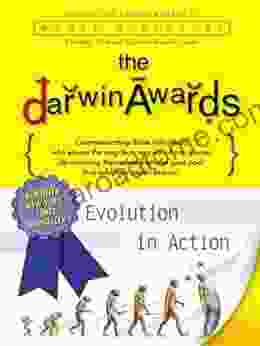
 Gary Reed
Gary ReedThe Darwin Awards: Evolution in Action
The Darwin Awards are a...
5 out of 5
| Language | : | English |
| File size | : | 28908 KB |
| Text-to-Speech | : | Enabled |
| Screen Reader | : | Supported |
| Enhanced typesetting | : | Enabled |
| Word Wise | : | Enabled |
| Print length | : | 269 pages |


